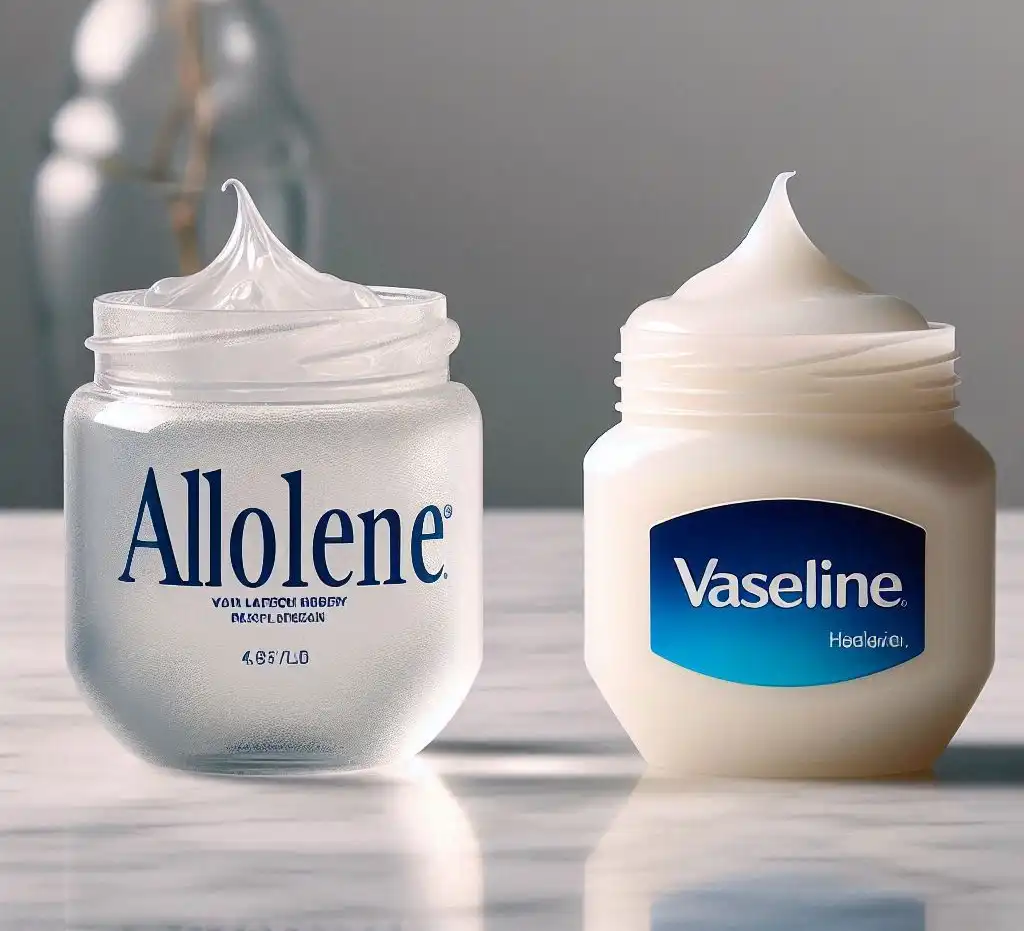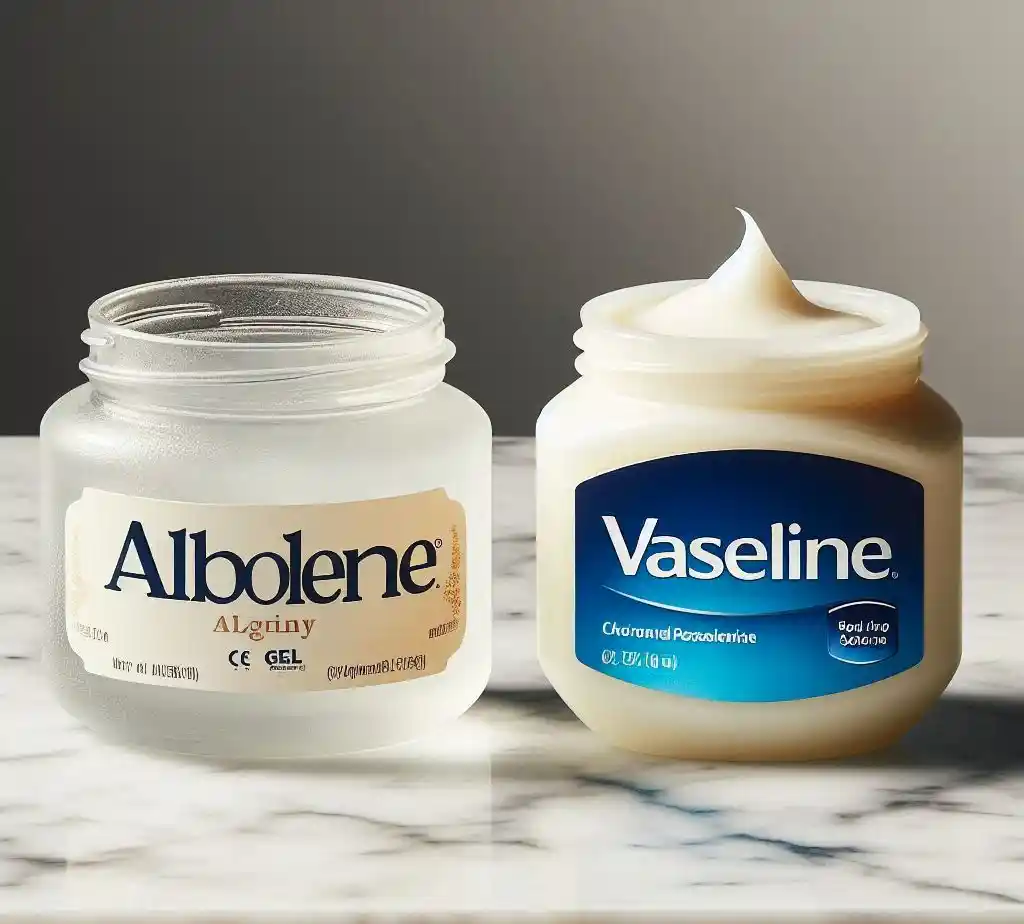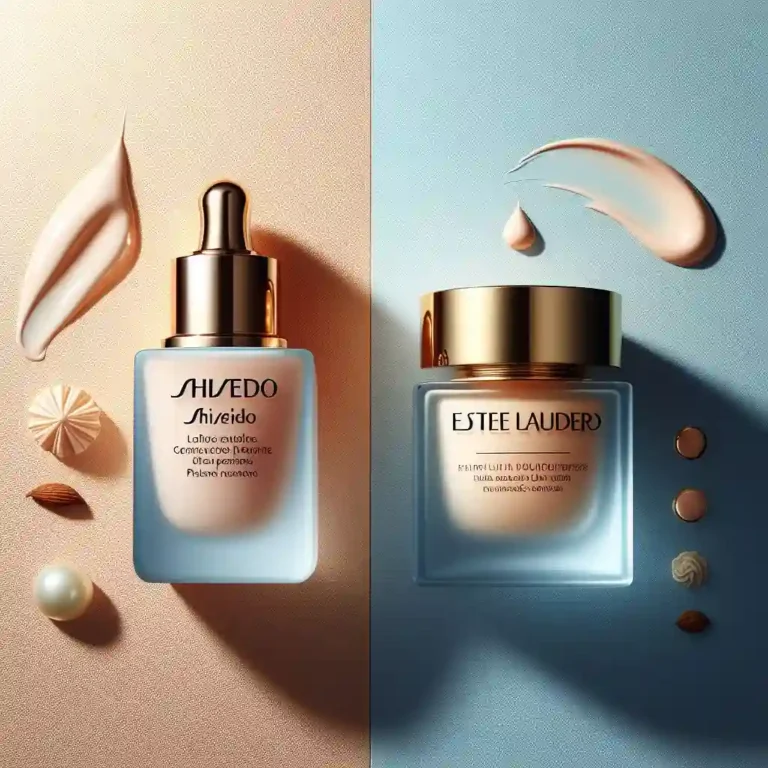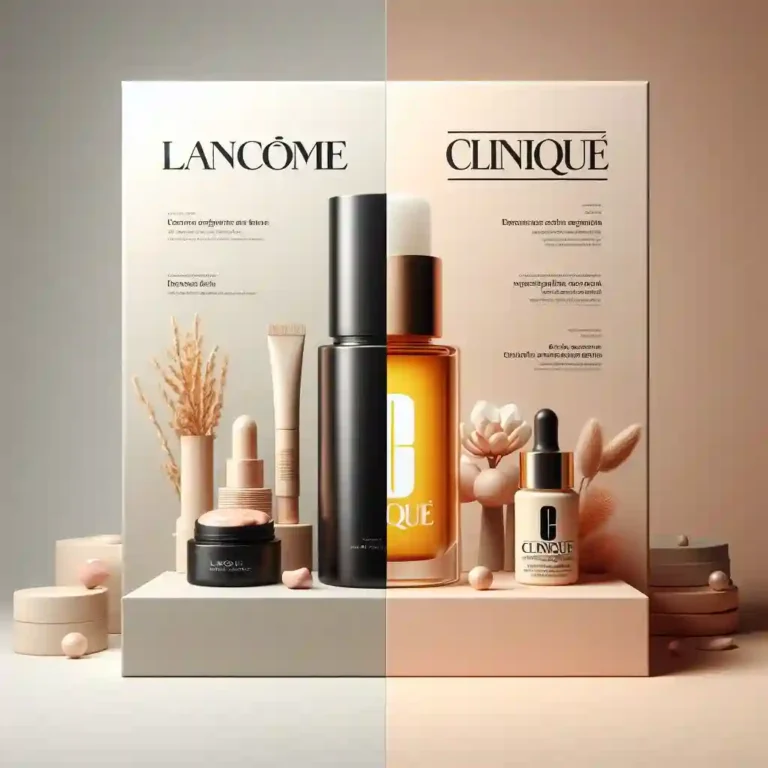Albolene vs Vaseline – Which One to Choose?
Albolene vs Vaseline – When it comes to keeping our skin hydrated and healthy, we’re spoiled for choice with the numerous moisturizers available on the market.
Two popular options that have been trusted by generations are Albolene and Vaseline.
In this article, we’ll delve into the world of Albolene and Vaseline to help you make an informed decision about which moisturizer is right for you.
Albolene vs Vaseline – A Quick Comparison

| Characteristic | Albolene | Vaseline |
|---|---|---|
| Texture | Rich, creamy | Thick, gooey |
| Moisturizing | Intensive hydration | Locks in moisture |
| Skin Type | Dry, sensitive, mature | Dry, chapped, irritated |
| Price | 10-20 | 5-15 |
| Uses | Makeup remover, cuticle care, nail care | Lip balm, cuticle oil, hair care |
| Safety | Generally safe, but may cause skin irritation | Generally safe, but may cause skin irritation |
| Contraindications | Open wounds, cuts, burns | Open wounds, cuts, burns |
Moisturizing Properties: Which One Hydrates Better?
Albolene:
- Albolene is a moisturizing cream that contains a blend of mineral oil, petrolatum, and ceresin (a type of wax).
- It provides long-lasting hydration and helps to lock in moisture, making it an excellent option for dry, sensitive, or mature skin.
- Albolene’s rich, creamy texture helps to repair and protect the skin’s natural barrier, leaving skin feeling soft, smooth, and supple.
- It’s particularly effective at providing intense hydration to dry, cracked, or irritated skin.
Vaseline:
- Vaseline, also known as petroleum jelly, is a thick, gooey substance that provides a physical barrier on the skin’s surface.
- While it does provide some level of hydration, its moisturizing properties are more superficial, sitting on the skin’s surface rather than penetrating deeply.
- Vaseline is excellent at locking in moisture, but it can also create a barrier that prevents the skin from “breathing” and releasing toxins.
- It’s often used to protect and soothe dry, chapped, or irritated skin, but may not provide the same level of intense hydration as Albolene.
Skin Barrier Repair: Albolene vs Vaseline

Albolene:
- Albolene is rich in emollients and humectants that help to repair and restore the skin’s natural barrier.
- It contains ingredients like mineral oil, petrolatum, and ceresin, which help to fill in gaps between skin cells and provide a protective layer.
- Albolene’s rich, creamy texture helps to nourish and moisturize the skin, making it an excellent option for dry, sensitive, or compromised skin.
- It’s particularly effective at repairing the skin’s natural barrier, reducing inflammation, and soothing irritation.
Vaseline:
- Vaseline, also known as petroleum jelly, creates a physical barrier on the skin’s surface that helps to lock in moisture and protect the skin from environmental stressors.
- It’s an occlusive agent that helps to fill in gaps between skin cells, providing a protective layer that prevents moisture loss.
- Vaseline is excellent at providing a barrier against wind, cold weather, and dry air, making it a popular choice for dry, chapped, or irritated skin.
- However, Vaseline can also create a barrier that prevents the skin from “breathing” and releasing toxins, which can lead to clogged pores and skin congestion.
Makeup Removal: Which Product is More Effective?
Albolene:
- Albolene is a gentle, non-irritating cream that effectively removes makeup, including waterproof and stubborn products.
- Its rich, creamy texture helps to break down and dissolve makeup, making it easy to wipe away.
- Albolene is particularly effective at removing heavy or stubborn makeup, including waterproof mascara and eyeliner.
- It’s also gentle enough for sensitive skin and can be used to remove makeup from the delicate skin around the eyes.
Vaseline:
- Vaseline, also known as petroleum jelly, can be used to remove makeup, but it’s not as effective as Albolene.
- Vaseline can help to break down and dissolve makeup, but it can be more difficult to remove stubborn products.
- Vaseline can also leave a residue on the skin, which can be problematic for those with oily skin or acne-prone skin.
- However, Vaseline can be effective at removing waterproof makeup, especially when used in conjunction with a gentle cleanser.
Skin Types: Who Should Use Albolene and Who Should Use Vaseline?

Albolene:
- Dry, sensitive, or mature skin: Albolene is an excellent choice for dry, sensitive, or mature skin that requires intense hydration and nourishment.
- Compromised skin: Albolene is also suitable for skin that’s compromised due to harsh weather conditions, over-exfoliation, or skin conditions like eczema or rosacea.
- Skin that needs repair: If your skin is damaged, irritated, or inflamed, Albolene’s rich, creamy texture and nourishing ingredients can help to repair and restore the skin’s natural barrier.
Vaseline:
- Dry, chapped, or irritated skin: Vaseline is an excellent choice for dry, chapped, or irritated skin that needs a protective barrier to lock in moisture.
- Windburn or chapped lips: Vaseline is great for protecting and soothing windburned or chapped lips.
- Skin that needs a barrier: If you have skin that’s prone to dryness, irritation, or windburn, Vaseline can provide a protective barrier that helps to lock in moisture and soothe the skin.
Texture and Consistency: A Comparison of Albolene and Vaseline
Albolene:
- Rich, creamy texture: Albolene has a luxurious, rich, and creamy texture that’s similar to a thick moisturizer.
- Smooth, velvety feel: When applied to the skin, Albolene has a smooth, velvety feel that’s comfortable and non-greasy.
- Easy to spread: Albolene is easy to spread and absorbs quickly into the skin, leaving no residue or greasiness.
- Non-sticky: Albolene doesn’t leave a sticky or tacky feeling on the skin, making it suitable for daily use.
Vaseline:
- Thick, gooey texture: Vaseline has a thick, gooey texture that’s similar to a thick petroleum jelly.
- Greasy feel: When applied to the skin, Vaseline can leave a greasy, oily feeling that can be uncomfortable for some users.
- Difficult to spread: Vaseline can be difficult to spread evenly, and it may require some effort to apply it to the skin.
- Sticky residue: Vaseline can leave a sticky residue on the skin, which can be problematic for those with oily skin or acne-prone skin.
Pricing and Value: Which Product Offers the Best Bang for Your Buck?
Albolene:
- Price: Albolene typically ranges from 10 to 20 for a 12-ounce jar, depending on the retailer and location.
- Value: Albolene offers excellent value for its price, considering its rich, creamy texture and intense moisturizing properties.
- Quantity: A 12-ounce jar of Albolene can last for several months, making it a cost-effective option in the long run.
Vaseline:
- Price: Vaseline typically ranges from 5 to 15 for a 13-ounce jar, depending on the retailer and location.
- Value: Vaseline offers good value for its price, considering its thick, protective barrier and moisturizing properties.
- Quantity: A 13-ounce jar of Vaseline can last for several months, making it a cost-effective option in the long run.
Additional Uses: Beyond Moisturizing with Albolene and Vaseline
Albolene:
- Makeup remover: Albolene can be used to remove makeup, including waterproof and stubborn products.
- Cuticle care: Albolene can be used to soften and moisturize cuticles, making it easier to push them back.
- Nail care: Albolene can be used to moisturize and soften nails, making them less prone to breaking or splitting.
- Skin soothing: Albolene can be used to soothe and calm irritated skin, making it an excellent option for skin conditions like eczema or rosacea.
Vaseline:
- Lip balm: Vaseline can be used as a lip balm to moisturize and protect dry, chapped lips.
- Cuticle oil: Vaseline can be used as a cuticle oil to moisturize and soften cuticles.
- Hair care: Vaseline can be used to moisturize and protect dry, damaged hair.
- Skin protection: Vaseline can be used to protect skin from windburn, sunburn, or cold weather.
Safety and Side Effects: Are Albolene and Vaseline Safe for All Skin Types?
Albolene:
- Potential side effects: Albolene may cause some skin irritation, redness, or itching in rare cases, especially if you have sensitive skin.
- Precautions: If you have sensitive skin, start with a small patch test to ensure you don’t have any adverse reactions. Avoid using Albolene on broken or irritated skin.
- Contraindications: Albolene is not recommended for use on open wounds, cuts, or burns.
Vaseline:
- Potential side effects: Vaseline may cause some skin irritation, redness, or itching in rare cases, especially if you have sensitive skin.
- Precautions: If you have sensitive skin, start with a small patch test to ensure you don’t have any adverse reactions. Avoid using Vaseline on broken or irritated skin.
- Contraindications: Vaseline is not recommended for use on open wounds, cuts, or burns.
FAQs
Q: What is Albolene?
A: Albolene is a moisturizing cream that provides intense hydration and nourishment to dry, sensitive, or mature skin.
Q: What is Vaseline?
A: Vaseline is a petroleum jelly that provides a protective barrier on the skin’s surface, locking in moisture and protecting against dryness and irritation.
Q: What are the differences between Albolene and Vaseline?
A: Albolene is a moisturizing cream that provides intense hydration and nourishment, while Vaseline is a petroleum jelly that provides a protective barrier on the skin’s surface.
Q: Which one is better for dry skin?
A: Both Albolene and Vaseline can be beneficial for dry skin, but Albolene is generally better suited for dry, sensitive, or mature skin that requires intense hydration and nourishment.
Q: Which one is better for oily skin?
A: Vaseline is generally better suited for oily skin, as it provides a protective barrier that can help to control oil production and reduce shine.
Q: Can I use Albolene or Vaseline on my face?
A: Yes, both Albolene and Vaseline can be used on the face, but it’s essential to patch test and start with a small amount to ensure you don’t have any adverse reactions.
Q: Can I use Albolene or Vaseline on my body?
A: Yes, both Albolene and Vaseline can be used on the body, but it’s essential to patch test and start with a small amount to ensure you don’t have any adverse reactions.
Q: Are Albolene and Vaseline safe for all skin types?
A: Both Albolene and Vaseline are generally considered safe for most skin types, but it’s essential to follow proper usage guidelines and precautions to minimize the risk of adverse reactions.
Q: Can I use Albolene and Vaseline together?
A: Yes, you can use Albolene and Vaseline together, but it’s essential to patch test and start with a small amount to ensure you don’t have any adverse reactions.
Q: Can I use Albolene and Vaseline on my hair?
A: Yes, both Albolene and Vaseline can be used on the hair, but it’s essential to patch test and start with a small amount to ensure you don’t have any adverse reactions.

Hi, I’m Rachel Powell, the founder and creative mind behind FashionBeautyLooks.com. With a passion for all things fashion and beauty, I’ve dedicated my career to helping others discover their unique style and enhance their natural beauty.







